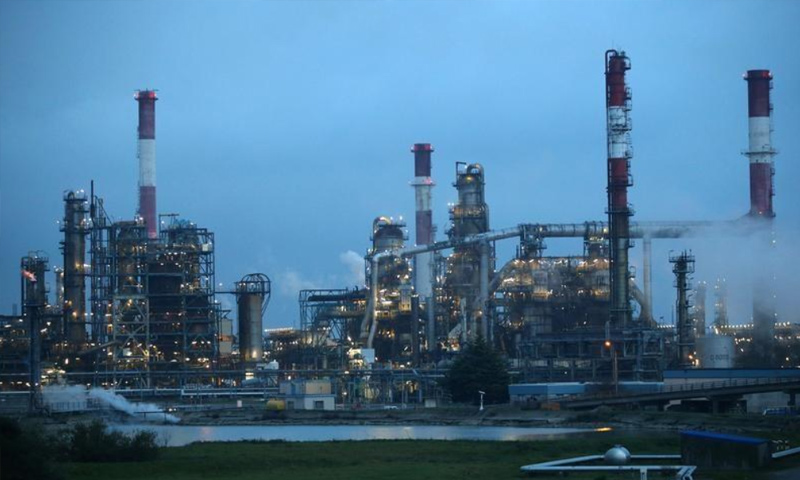On Thursday, 9 January, Head of the Syrian regime, Bashar al-Assad approved the establishment of two private companies involved in the field of oil refineries, with a capital of 20 billion Syrian pounds (SYP- around 20.4 million USD ); each will get ten SYP (10.2 million USD).
The al-Iqtisadi website reported that law No.28 included the ratification of the establishment of the al-Rusafa Refining Company, which is aimed at operating and managing heavy crude oil refinery while the law No.30 has the ratification of the establishment of the Coast Refinery.
About 80 percent of these two refineries are owned by the Arvada Petroleum Company, which holds al-Assad’s share of the partnership,while the Ministry of Oil and Natural Resources gets 15 percent and the Labanese Sallizar Shipping SAL has 5 percent.
Al-Assad’s approval came a month after the People’s Council of Syria passed on 8 December 2019 a bill establishing two private companies operating in oil refining; the “Coast Refinery” and the “Rusafa Refinery,” according to the state-run news agency (SANA).
The People’s Council of Syria also approved at the same time the partner agreement signed between the Ministry of Petroleum and Natural Resources and the General Organization for Refining and Distribution of Petroleum Products (GORDPP) as the first party, and Arvada— a private anonymous joint-stock company affiliated with “Katerji Group”—and the Lebanese Sallizar Shipping SAL as the second party.
Arvada, which was founded in Damascus in June 2018, with a capital of one billion SYP ( 1.02 million USD), belongs to Hussam Katerji, who holds 34 percent of the company’s shares whereas his two brothers have differenciated shares; Mohammed Baraa Katerji has 33 percent stake in the company and Ahmed Bashir Katerji gets 33 percent.
The state-run newspaper Tishreen reported earlier that the Katerji Company, which is considered as the relying second party in the two oil refineries, is involved in sending oil shipments mixed with water to the Homs refinery. The shipments’ price was paid to Katirji according to their weight without being calibrated or previewed, and after refining the shipments, the refined oil output was calibrated.
The largest oil fields in Syria lie outside the control of the Syrian regime. Hussam Katirji acted as an intermediary for deals between the so-called Islamic State (ISIS) (during ISIS’s control of the oil fields) and the “Syrian Democratic Forces” (SDF) on the one hand, and with the Syrian regime on the other hand, to transfer fuel from northeastern Syria.
The US Treasury imposed sanctions on the Katirji Oil Company in September 2018, as it played the role of mediator between the Syrian regime and the ISIS, by facilitating oil shipments between the two parties, in addition to providing the regime with fuel, arms shipments and providing financial support.
This comes at a time when the United State of America declared that the US will keep its troops to protect oil fields in eastern Syria.
In a speech with his own supporters in the US state of Mississippi, on 1 November 2019, US President Donald Trump had confirmed his desire for the American soldiers in Syria to return to their homes, but he added, “we have secured the oil fields, because I love oil.” .

